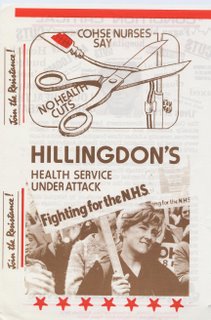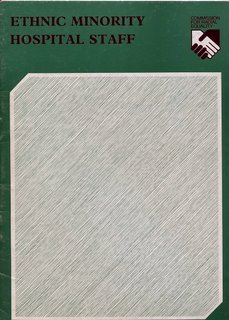Judith Carter
From the Bradford Telegraph & Argus, first published Friday 14th Feb 2003.
FAMILY legend has it that baby Judith Carter's first word was not Mummy, not even Daddy. It was "why"? And 59 years later, she is still asking why after one of the biggest disappointments in a hectic life full of challenges and setbacks.
For Judith, chief executive of Skipton and Craven Action for Disability (I shall explain the title later) has just received an extremely unwelcome kick in the teeth from people whose job in life, allegedly, is to do good.
Those fine people from the National Lottery Community Fund, which is sitting on hundreds of millions of unspent money, have refused SCAD a grant of more than £100,000 which would have gone to help hundreds of severely disabled people have an outing that otherwise would be beyond their dreams - a day's boating on the Leeds and Liverpool Canal.
Yet SCAD already has a promise of £25,000 from Barclays Bank plus £9,000 its own members have collected - and could this spring be well on the way to replacing its ageing canal barge so that it can take more disabled people on more trips.
"I am absolutely gutted," Judith told me at SCAD's bustling offices over its charity shop in Newmarket Street. "This sort of money is just peanuts to the Lottery but they have rejected our bid because, they say, we have not established a need for the service.
"Yet disabled people have been coming from all over the North for 11 years to sail the canal. These bureaucrats should see the looks of sheer joy on our passengers' faces when they get onto the water - that would tell them that there is a need for this unique service."
I should warn Lottery officials that they have a fight on their hands.
For Judith Carter has spent her entire working life battling authority - and most of the time, she has won.
Born in Bradford during the war, one of twin sisters, she won a scholarship to grammar school and then was launched on what was to be a civil service career by her father, a GPO engineer.
She hated it and was looking for a new career when she met and married her soon-to-be long suffering husband David and quickly had two of their three children.
He was a Lancastrian whose family had a retail furniture business and she moved to East Lancashire, starting a War of the Roses which continues to this day (more of that later, too).
With her children at school, she found a new career in nursing in Burnley and suddenly came up against what she describes "as an absolutely nonsensical regime run on absolute, unquestioning discipline and fear."
She recalls: "Matron in those days was a tyrant. Doctors were gods. We had to do things which were never explained and often seemed quite wrong. So I began to ask why - and quickly got myself a reputation as a troublemaker.
"Other nurses began to ask me to take up complaints on their behalf so I thought I might as well join the union. By the time I left as organiser of the Burnley branch, it had 800 members."
The union was the Confederation of Health Service Employees (COHSE) and soon she was being pressed to take up a paid role - only to run into another wall of opposition: fellow officials who were all male. "I was looked upon as some sort of freak," she shrugs.
She got her paid job eventually - but at a huge cost. She was turned down as a regional organiser in the North West, on her doorstep, and was instead posted to London, where she worked, miserable and alone, whilst her family stayed in Barrowford.
Eventually, that became too much - "There were a lot of people who thought I would quit" - so after a year, David moved the family down south and they moved to Hampshire.
That had its problems, too. David got a job with the local ambulance brigade and ended up as a senior manager. Then came a strike by drivers, who Judith represented, and they ending up facing each other on opposite sides of the negotiating table!
Judith's career went from strength to strength and she ended up as a national organiser and negotiator, being invited for beer and sandwiches at 10 Downing Street. She even sat down to tea with the Queen.
However, when COHSE joined with two local government unions to form Unison, she decided enough was enough. David took early retirement and they decided to come back north. But where?
She laughs: "David wanted Lancashire but I was determined to return to my native Yorkshire. In the end, we bought a house in Tosside which is just in Craven - but when David walks to the pub, he crosses the border into Lancashire."
Both were determined to relax but it was David who got bored first. With his background, he was welcomed with open arms when he volunteered to drive one of SCAD's three minibuses.
Judith was intrigued so she joined too. She took the title chief executive last year when SCAD became a company for complex insurance reasons.
"There is so much red tape surrounding charities and we had discovered that our trustees, who are all volunteers, might face huge financial penalties, even lose their homes, if something went wrong. You cannot expect volunteers to take that sort of risk."
Red tape, too, is part of the reason for SCAD's need to replace their canal boat, the Marjorie Charlesworth, named after the association's late founder. To refurbish it to meet the latest safety standards would cost £30,000, which members felt was too much to spend on an 11-year-old craft.
Well, the bureaucrats want to scupper that plan too. They would rather have loss-making opera houses, millennium domes or bent bridges, it would appear. Methinks they are in for a shock when Judith Carter gets on the phone





